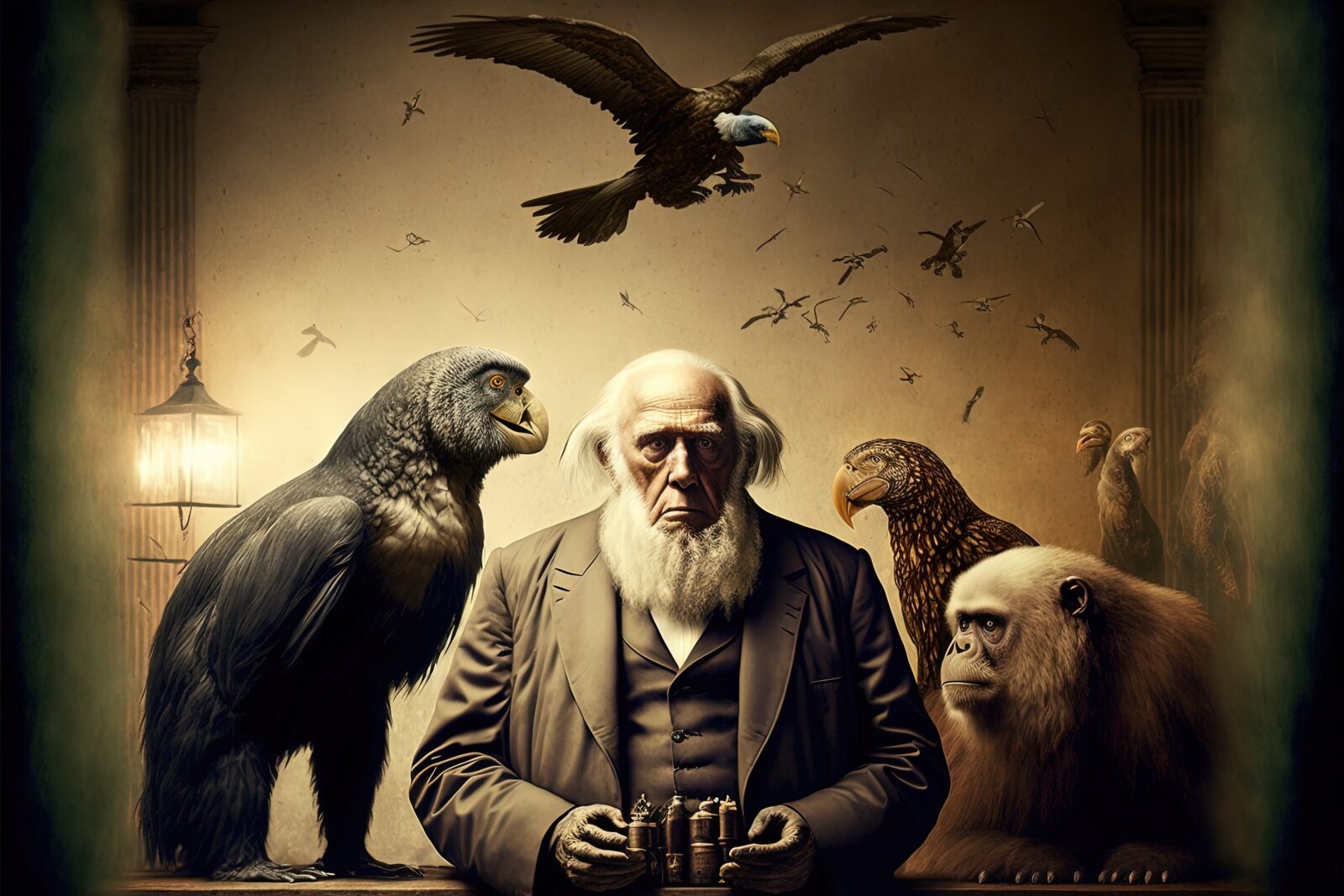Happy Darwin Day?
Published at The StreamToday is the birthday of Charles Darwin, and enthusiasts around the globe will be marking the occasion with special dinners, lectures, birthday parties and more.
Darwin boosters often insist they are inspired simply by a disinterested commitment to science, while their critics are motivated primarily by religion. But Darwin Day festivities make it painfully obvious that many promoters of Darwinian theory are just as interested in metaphysics as their critics. For supporters, evolution is not just a scientific theory. It’s a secular creation story, a governing myth that gives their life meaning and purpose.
Hence the growing popularity of “Darwin Day,” which has all the trappings of a holy day for both secular materialists and spiritual progressives. The Day itself is billed as a project of the “American Humanist Association,” and as I discuss in my book Darwin Day in America, many of its events have explicitly metaphysical overtones.
“Hallelujah! Evolution!”
In California, for example, this year you could attend a Darwin Day event (actually it took place the weekend before) featuring two ex-pastors-turned-atheists who offered their de-conversion stories followed by an “uplifting message of secular hope and love.” The gathering was organized by the “Stockton Area Atheists and Freethinkers.”
On the other coast, meanwhile, you could attend an “Evolution Sunday” event at a congregational church in Charleston, South Carolina, where the progressive pastor preached on how “our understanding of cosmic and natural evolution may help us move beyond the narrow confines of anthropocentrism to a richer, fuller view of life.”
In past years, Darwin Day events have included mock-gospel concerts featuring songs like “Randomness Is Good Enough for Me” and “Hallelujah! Evolution!” as well as lectures on topics such as “Biological Arguments against the Existence of God.”
One might be tempted to dismiss Darwin Day festivities as the antics of those on the fringe. But a preoccupation with metaphysics is anything but a fringe activity among Darwin’s leading defenders.
Consider the views of evolutionary biologist E.O. Wilson at Harvard. Wilson argues that “the existence of a biological God, one who directs organic evolution and intervenes in human affairs (as envisioned by theism) is increasingly contravened by biology and the brain sciences.” Not to worry, however, because Wilson thinks evolution can provide a perfect substitute for religion. As he puts it, the “evolutionary epic . . . is as intrinsically ennobling as any religious epic.”
Wilson wrote those words more than a decade ago, but just a few days ago he was in the news complaining that “what’s dragging us down is religious faith” and urging that “for the sake of human progress, the best thing we could possibly do would be to diminish, to the point of eliminating, religious faiths.”
Blind and Unguided
For too many in the scientific community, evolution is not merely “change over time” or descent from a common ancestor. It’s also a Darwinian insistence that all the varieties of life (including humans) are the products of blind and unguided processes.
Just how many scientists embrace the view that evolution is unguided? Quite a lot, it turns out. In late January, the Pew Forum released a new survey of members of American’s premiere scientific society, the American Association for the Advancement of Science (AAAS). According to that survey, 98% of AAAS members believe in evolution, but only a tiny fraction of them — 8 in 100 — think that “a supreme being guided the evolution of living things for the purpose of creating humans and other life in the form it exists today.”
There are a number of reasons people remain skeptical of key claims of Darwinian theory, but certainly one of them is the way so many mainstream defenders of evolution continue to insist that evolution must be blind and unguided. In a world where accidental events tend to produce disorder and degradation rather than innovation that claim is hard for many people to swallow.
Thoughtful Critics
The enthusiasts participating in Darwin Day festivities may find such skepticism beyond the pale, but if they truly want to understand the source of the disconnect between ordinary people and evolutionary biologists, they might try being a bit self-critical. If they were more open to disentangling evolutionary theory from materialist metaphysics, they might be more persuasive to those outside their own limited circle.
They might also be more persuasive if they responded to the real critics of Darwinian theory once in a while rather than flailing their typical straw man — the caricatured religious fundamentalist who doesn’t know anything about science. That caricature is growing threadbare as the number of serious critics of modern Darwinian theory multiplies in biology, chemistry, mathematics, computer science, philosophy and many other fields.
For example, biologists Douglas Axe, Ann Gauger, Mariclair Reeves, and Ralph Seelke have published peer-reviewed experimental research showing just how difficult it is for Darwinian mechanisms to evolve new functions in bacteria. Computer scientist Robert Marks and mathematician William Dembski have produced peer-reviewed computational research challenging evolutionary computing models that purport to show the effectiveness of Darwinian mechanisms. Noted philosophers Thomas Nagel (an atheist) and Alvin Plantinga (a Christian) have offered sophisticated critiques of Darwinian accounts of mind.
If Darwin Day devotees want to be viewed as more than the mere members of a quirky cult dedicated to honoring a dead white male from the Victorian age, they need to start engaging their thoughtful critics. Otherwise, they may find themselves increasingly irrelevant as the real discussion passes them by.
